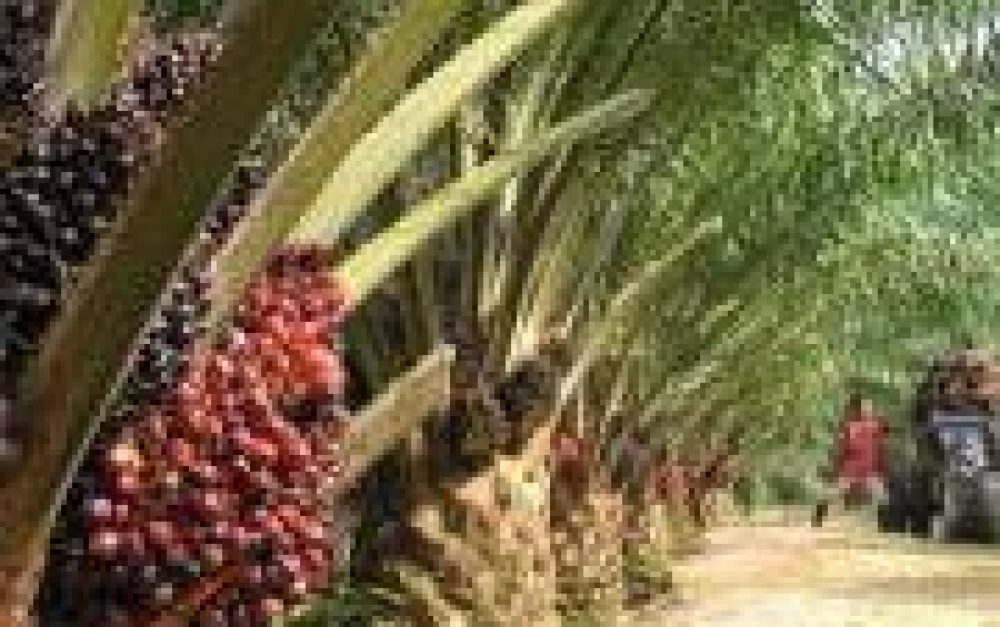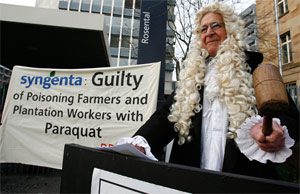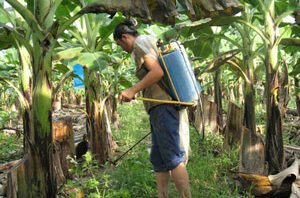Pesticide use on the massive palm oil plantations throughout Asia and the Pacific is putting the health of communities and agricultural workers at risk. This week, PAN's office in the region will press palm oil companies to stop use of the most dangerous pesticides, including the infamous herbicide paraquat.
PAN's resolution and petition will be presented on March 8 to the meeting of the Roundtable on Sustainable Palm Oil (RSPO), an organization made up of companies that produce, market, invest and trade in palm oil, as well as environmental and other nonprofit organizations. The list of companies involved includes U.S. giants such as Cargill, Nestle, and Unilever.
The goal of the RSPO is to set a standard and build a market for palm oil that has been certified as "sustainable." It has developed a set of principles and criteria that producers must meet to gain this certification.
Palm oil is found in thousands of consumer products, from cereals to lipsticks. Production of palm oil has tripled in the last five years, leading to rapid expansion of palm plantations in Indonesia and Malaysia — where 85% of the world's palm oil is produced.
While many of the existing criteria developed by the Roundtable include important steps toward sustainability, the RSPO has been widely criticized by citizen and environmental organizations for not requiring enough from its certified producers in terms of environmental and human rights standards.
Use of dangerous pesticides continues
Even as many countries throughout the world have banned pesticides that are internationally recognized as harmful to human health, use of these same pesticides has increased in Asia. In fact, agricultural pesticide use in Asia accounts for 30% of global pesticide consumption.
One of the most damaging of the pesticides used on palm plantations is paraquat, included on PAN's original "Dirty Dozen" list because of its extreme toxicity. The widely used herbicide is currently on PAN's list of highly hazardous pesticides. Paraquat is fatal if ingested, and linked to several long term health problems including kidney failure, respiratory failure, skin cancer, and Parkinson's disease.
It is currently allowed under RSPO standards.
Take Action >> PAN Asia and the Pacific (PAN AP) and its partners have introduced a resolution to the RSPO, which would immediately ban the use of paraquat, and require a phase-out of other highly hazardous pesticides. The resolution will be considered at the upcoming RSPO General Assembly on March 8th. To support the efforts of PAN AP, please sign the petition to the RSPO.







